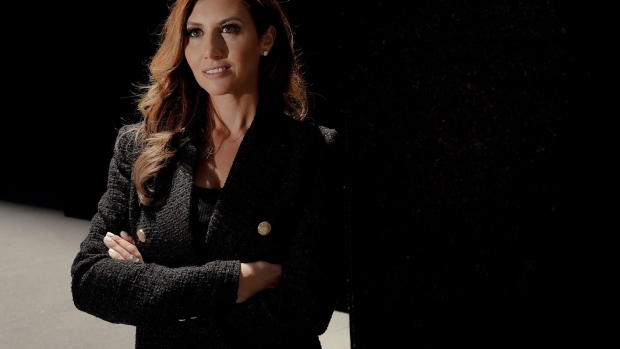Jan 21, 2023
Trump Not Scared by Judge’s Million-Dollar Smack, Experts Say
, Bloomberg News

(Bloomberg) -- A court order that Donald Trump and his lawyer must pay almost $1 million in sanctions for filing an “abusive” lawsuit against Hillary Clinton probably won’t succeed in deterring him, legal experts say.
The order was handed down Thursday by US District Judge Donald Middlebrooks in West Palm Beach, Florida, four months after the suit alleging a vast conspiracy against Trump was tossed out. The judge picked apart Trump’s allegations paragraph by paragraph, calling the case “a deliberate attempt to harass; to tell a story without regard to facts.”
The judge’s 46-page ruling is a detailed takedown of Trump’s argument about the origins of the FBI’s probe into Russian meddling in the 2016 presidential election, which the former president claimed was cooked up by Clinton and corrupt Democrats. Middlebrooks called the lawsuit a “hodgepodge of disconnected, often immaterial events, followed by an implausible conclusion.”
One expert said the sanctions sent a powerful message.
“Both in the language of the order and amount of the award, this represents a strong rebuke of Mr. Trump, his attorneys and the claims he tried to advance in this case,” said Michel Huff, a criminal defense lawyer in California.
Read More: Trump, Lawyer Hit With $937,989 Sanctions in Clinton Case
But Trump isn’t one to back down in the face of criticism, especially from a judge he has already gone on record saying could be biased against him. Middlebrooks was appointed by former President Bill Clinton, the defendant’s husband.
Vivid Predictions
“I don’t see Trump changing his strategy,” said former federal prosecutor Jennifer Rodgers, now a lecturer at Columbia Law School. “This particular judge obviously has had enough of Trump’s abusive tactics, but Trump also knows that other judges won’t necessarily follow Judge Middlebrooks’s lead.”
In fact, he might double down and file weak lawsuits to see how they do before different judges, Rodgers said, withdrawing cases as needed before they get to the point of dismissal — or sanctions.
Trump’s lawyer Alina Habba didn’t immediately return phone calls or an email seeking comment on the impact of the sanctions on her client.
As for the Clinton case, Trump could place the blame on Habba herself, said former federal prosecutor Kevin O’Brien. Together with Trump, she is liable for $937,989 in fees and costs for Clinton and more than a dozen other defendants named as part of the alleged conspiracy.
“Trump’s conduct will not change,” O’Brien said. “First there will be the time-consuming and frivolous appeals. Then, because the penalty was imposed ‘jointly and severally’ on both Trump and his lawyer, Ms. Habba, Trump will not pay, leaving Habba to shoulder the entire penalty on pain of keeping her law license.”
He predicted that Trump “will emerge unscathed.”
‘Hellish Price’
Chicago trial lawyer Shawn Collins said the sanctions are likelier to have an impact on lawyers who consider doing work for Trump in the future. The ruling shows there is a “hellish price to be paid” for filing lawsuits on behalf of Trump with “fact-free tabloid-style theories,” Collins said.
Future potential Trump lawyers “will think twice about it, out of a sense of financial self-preservation, if not professionalism and decency,” he said.
Trump may be factoring the sanctions in to some degree. On Friday he dropped a Florida lawsuit he filed last year against New York Attorney General Letitia James, challenging part of her $250 million civil fraud suit against him and his company, pending in a New York court. That suit was also before Middlebrooks, who said in an earlier ruling that the case was likely to fail. A notice of voluntary dismissal, filed by Florida attorney R. Quincy Bird, didn’t give a reason for the move.
Bird didn’t immediately respond to an email seeking comment.
Read More: Trump Drops James Suit After $937,989 Ruling in Clinton Case
Earlier this month, Habba barely escaped sanctions over Trump’s failed arguments in a motion to dismiss James’s suit in New York state court, which goes to trial in October. Justice Arthur Engoron warned Trump’s lawyers he was weighing sanctions against them for advancing previously rejected arguments in their motion. He ultimately decided not to sanction them when he declined to toss the suit out, concluding his threat had “made its point.”
“Sophisticated defense counsel should have known better,” Engoron said in his ruling.
‘Doesn’t Care’
He was less forgiving earlier in the case, when he held Trump in contempt of court and fined him $10,000 a day for failing to properly respond to James’s subpoena for records. Trump racked up $110,000 in fines before the judge was satisfied by sworn affidavits from him and Habba that they had fully complied.
Trump has appealed the fine.
Read More: Trump Paid $110,000 Fine to Lift Contempt-of-Court Finding
“Somebody in the courts finally took a stand against him,” Trish Crouse, a practitioner in residence in legal studies and political science at the University of New Haven, said of the Middlebrooks sanctions. “But it’s so hard to say if anything sticks with Trump. I honestly think he doesn’t care.”
The case is Trump v. Clinton, 22-cv-14102, US District Court, Southern District of Florida.
Read More
- Trump Drops NY Tax Return Fight Because GOP ‘Has No Interest’
- Trump’s NY Tax Fraud Hit Eclipsed by Impact of Felony Conviction
- QuickTake: What Trump’s Legal Perils Mean for Trump’s Candidacy
©2023 Bloomberg L.P.







